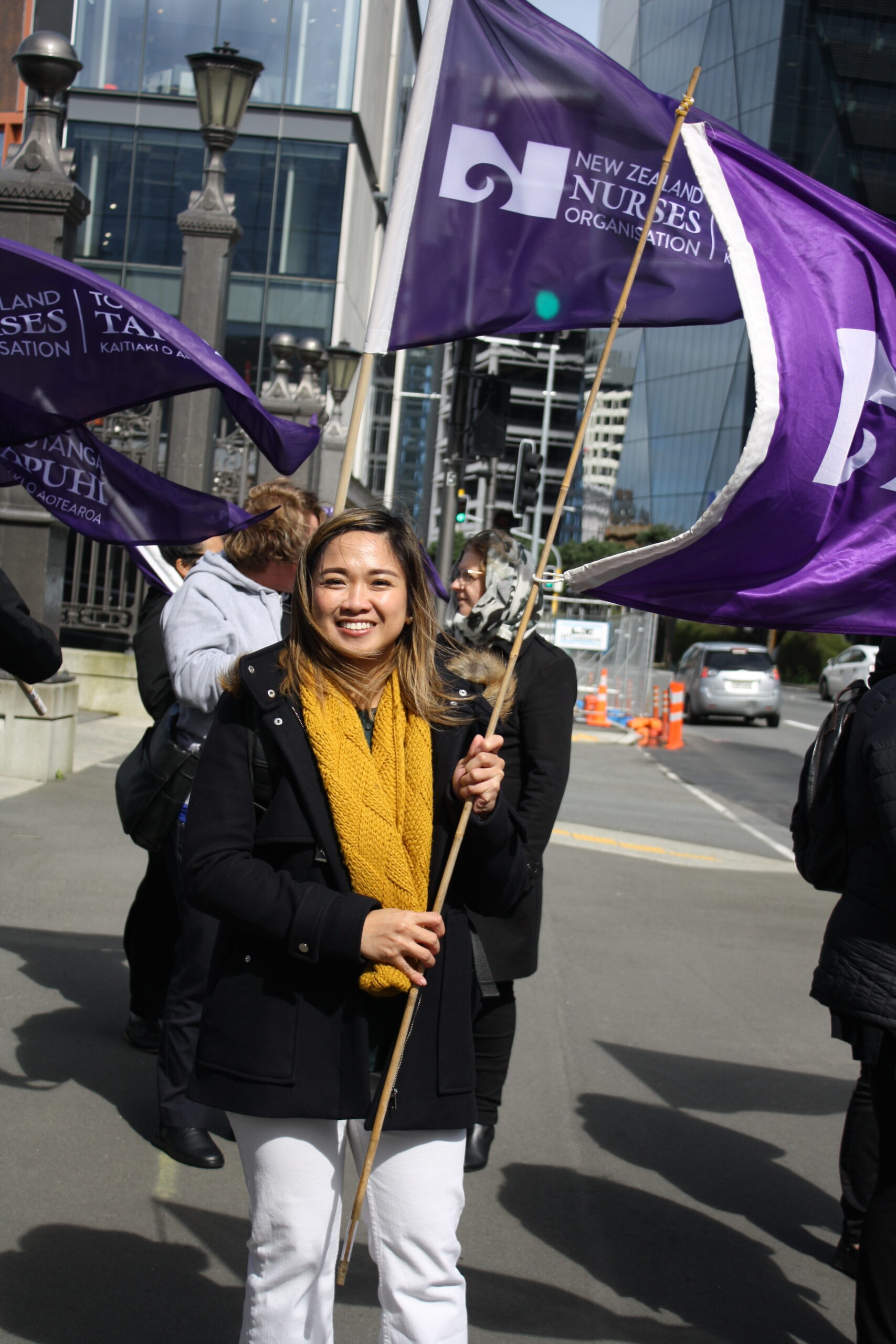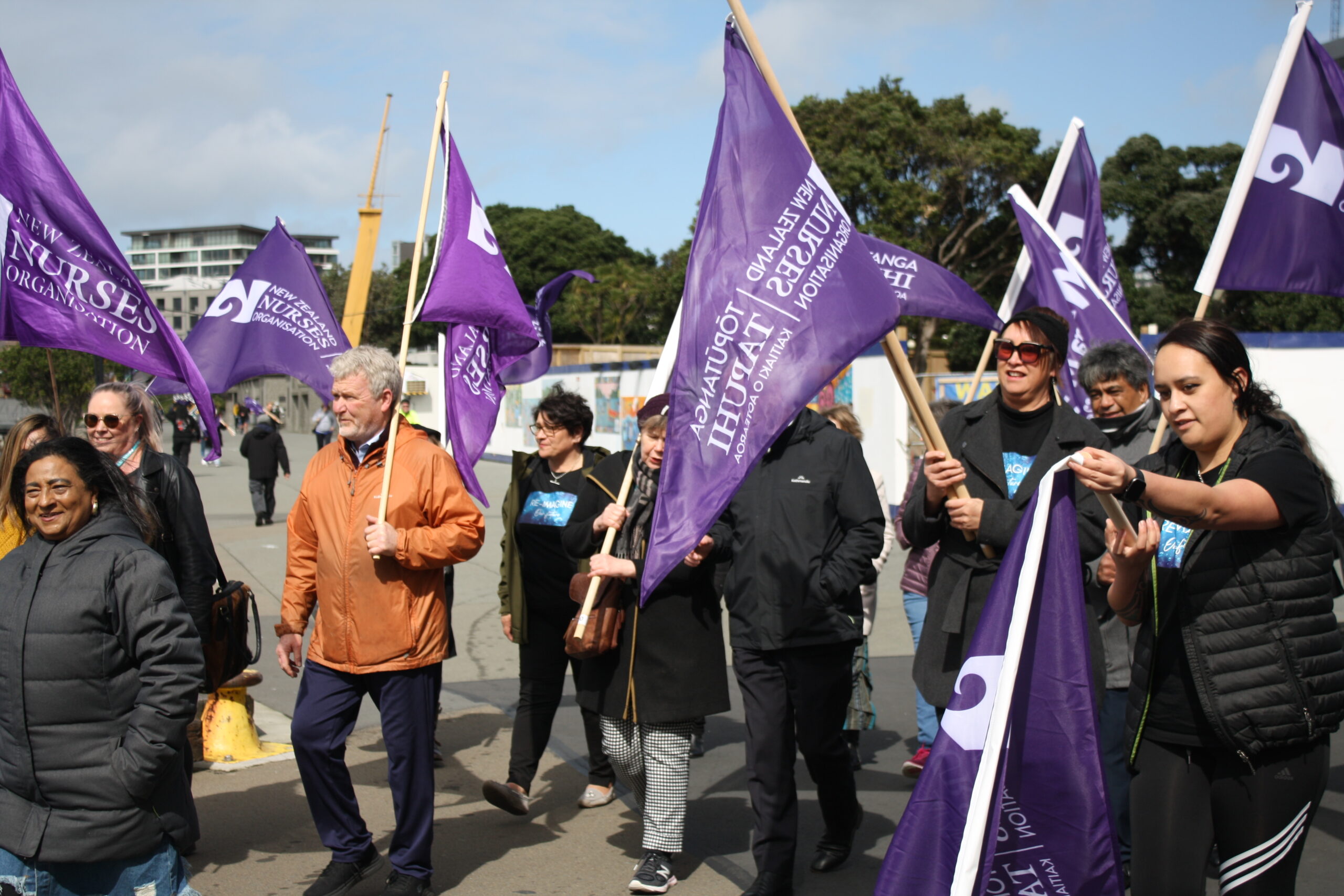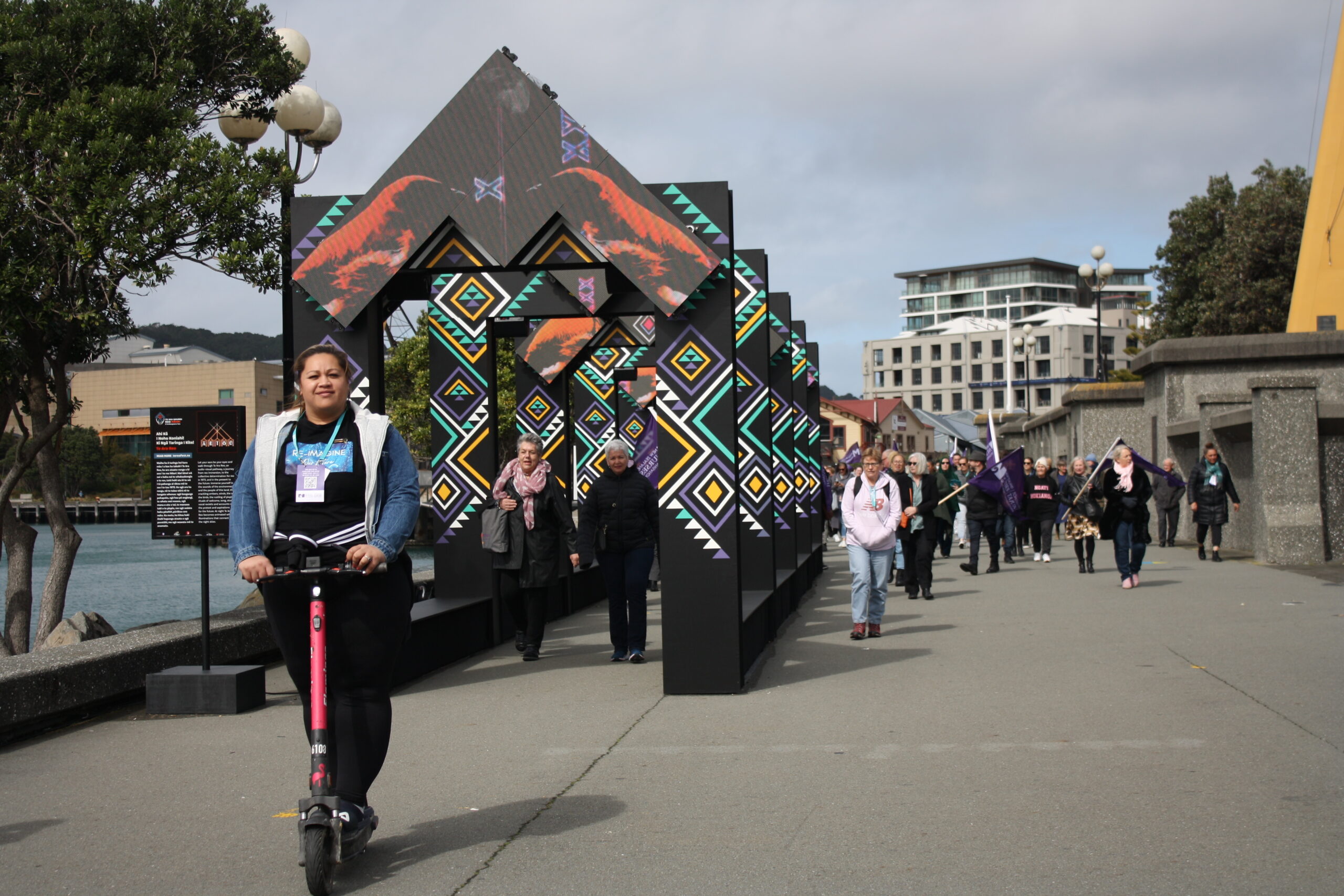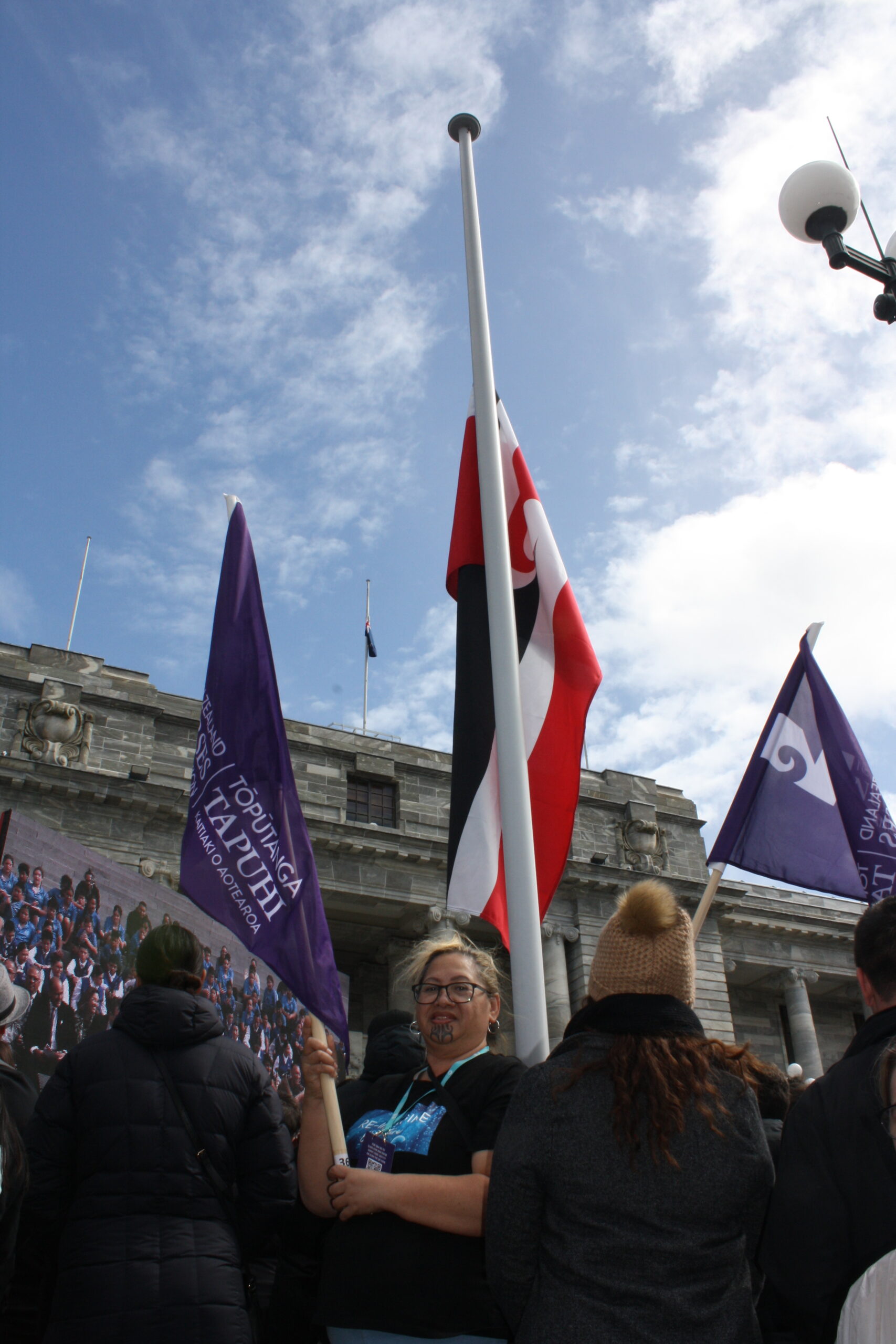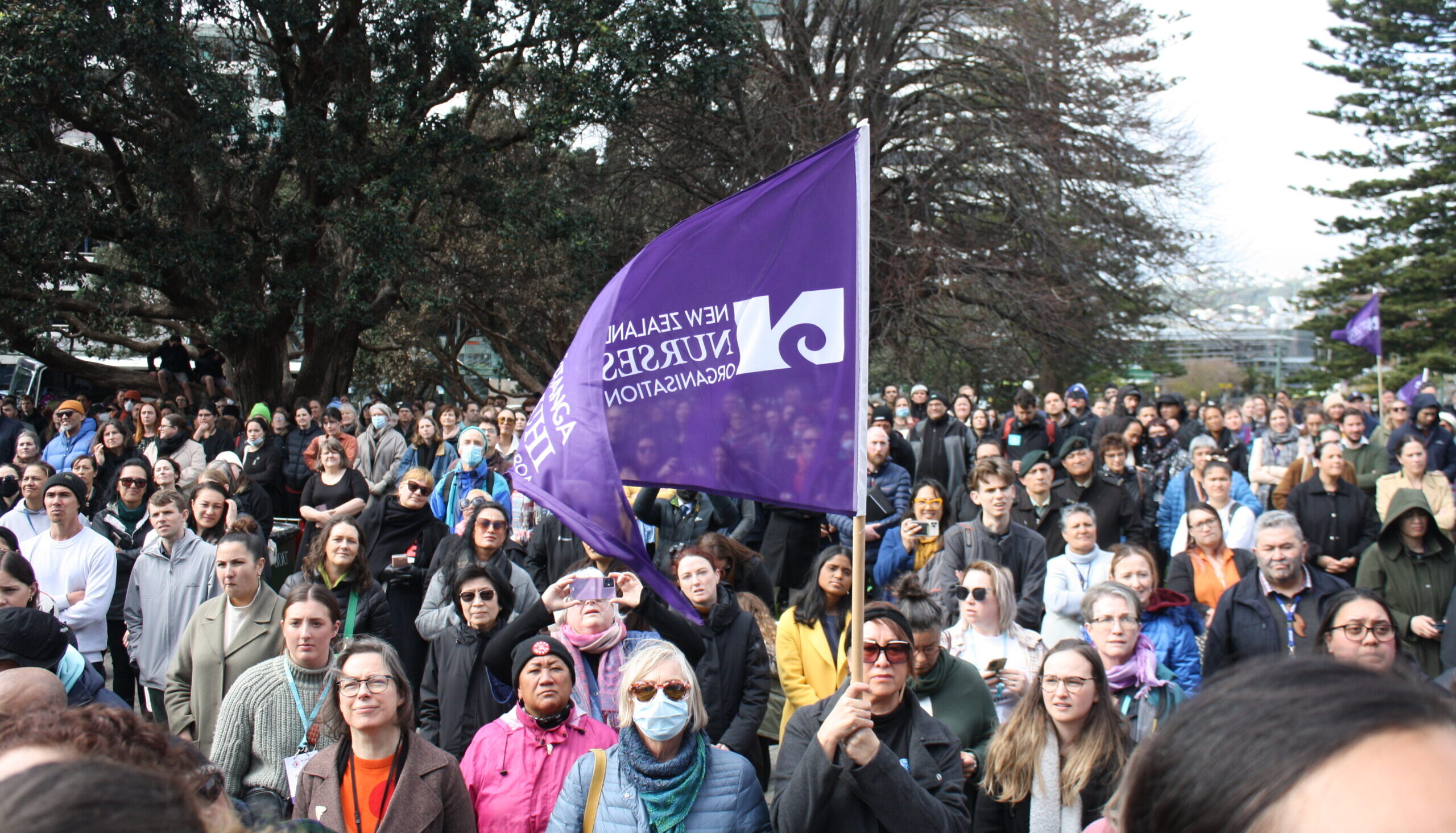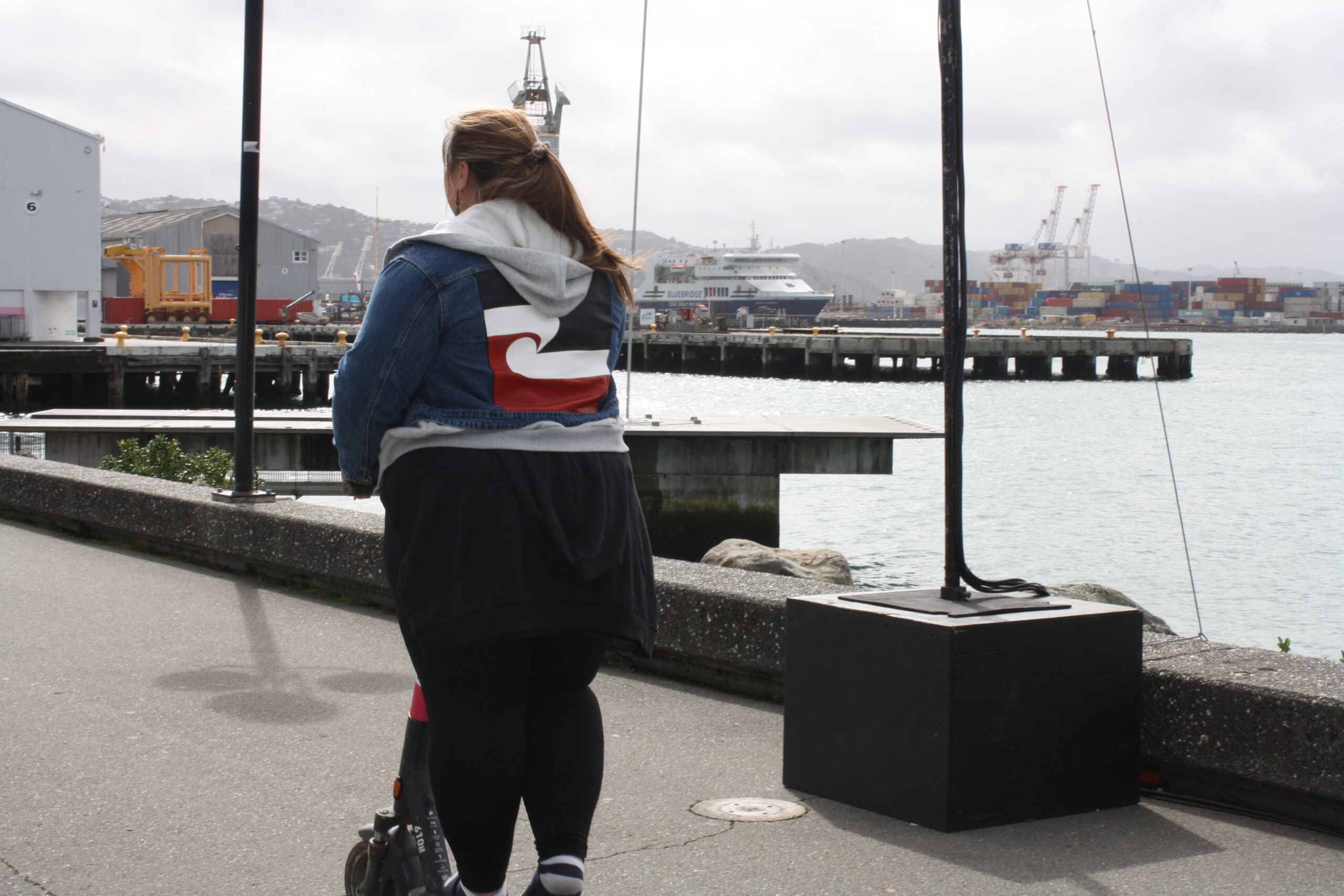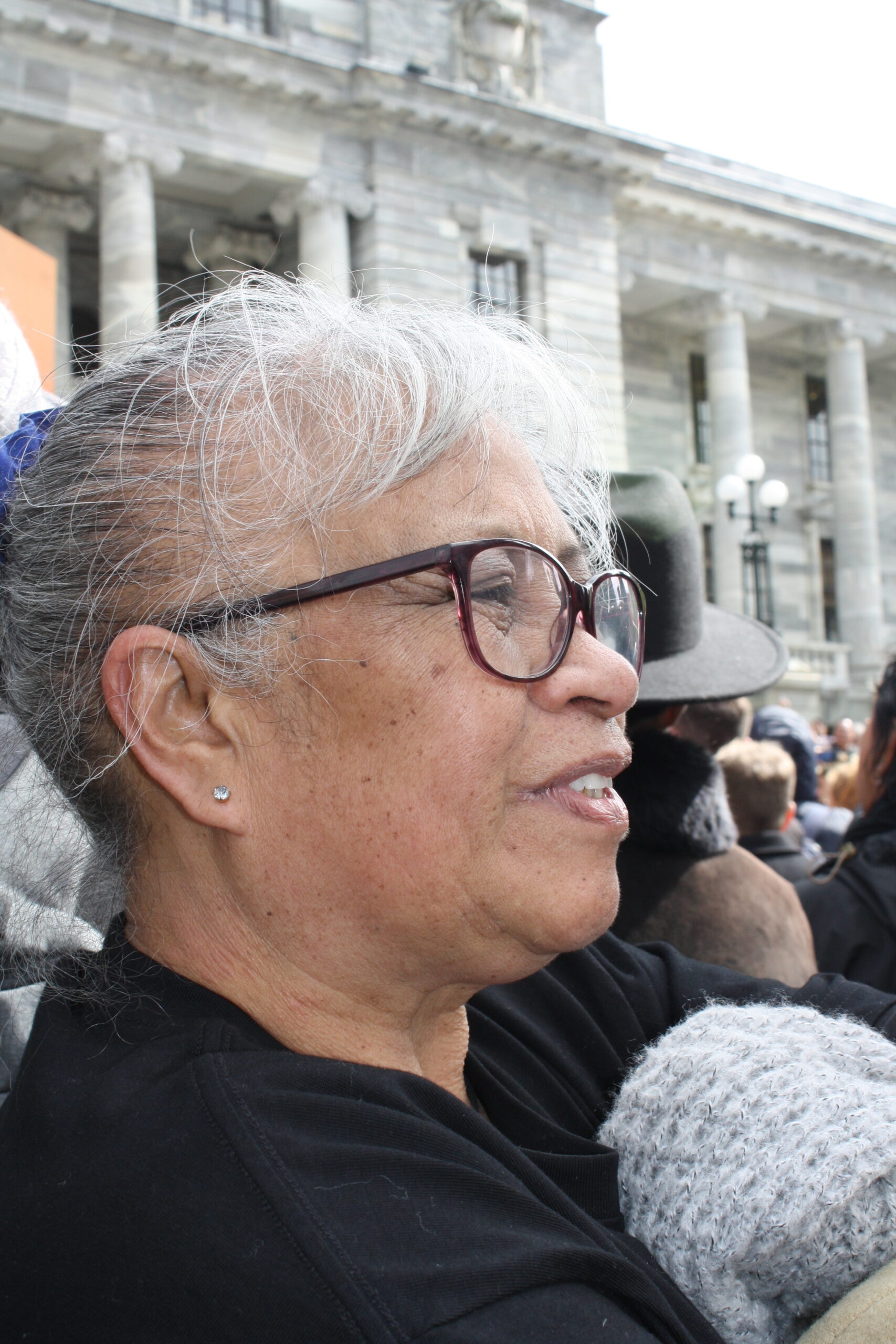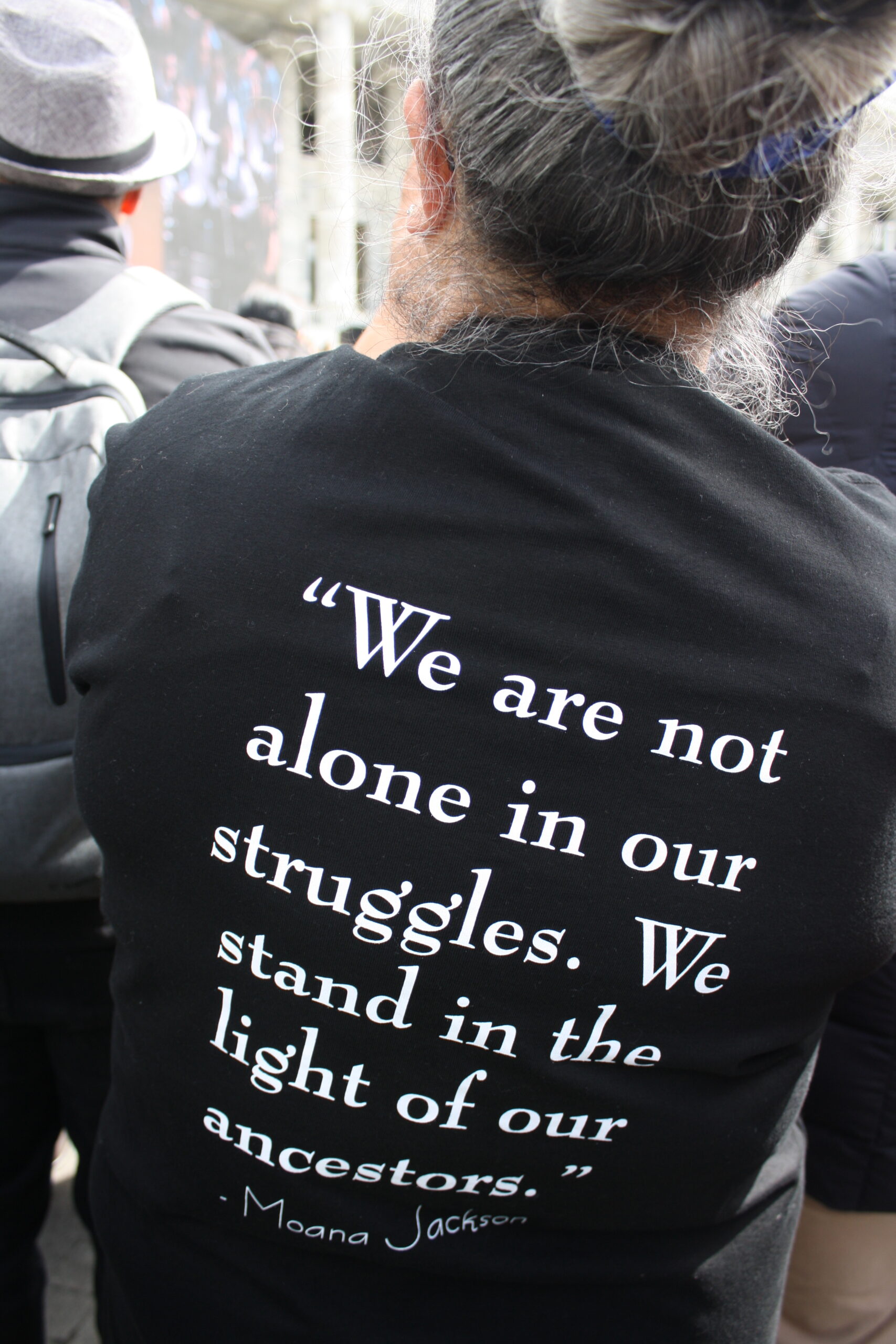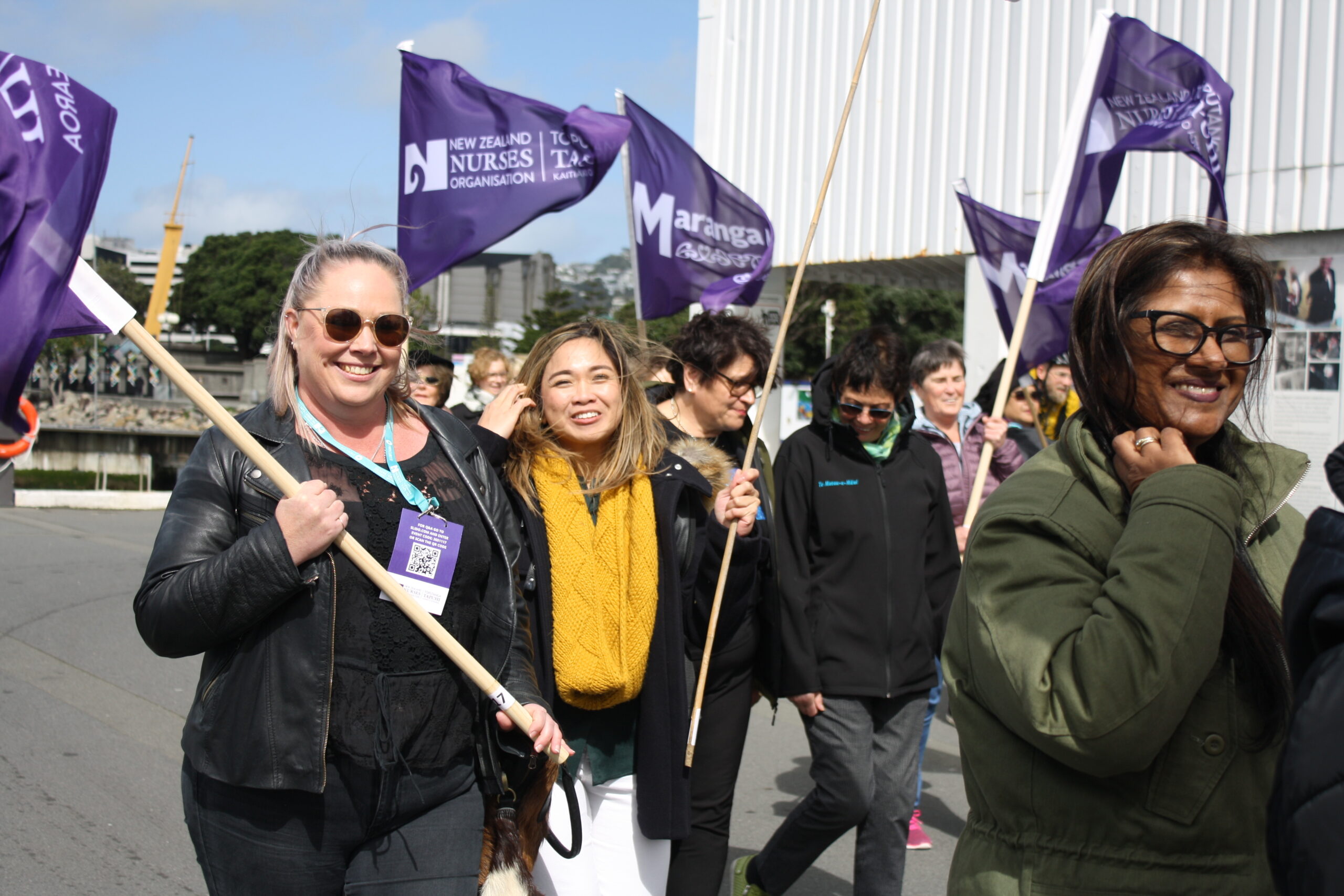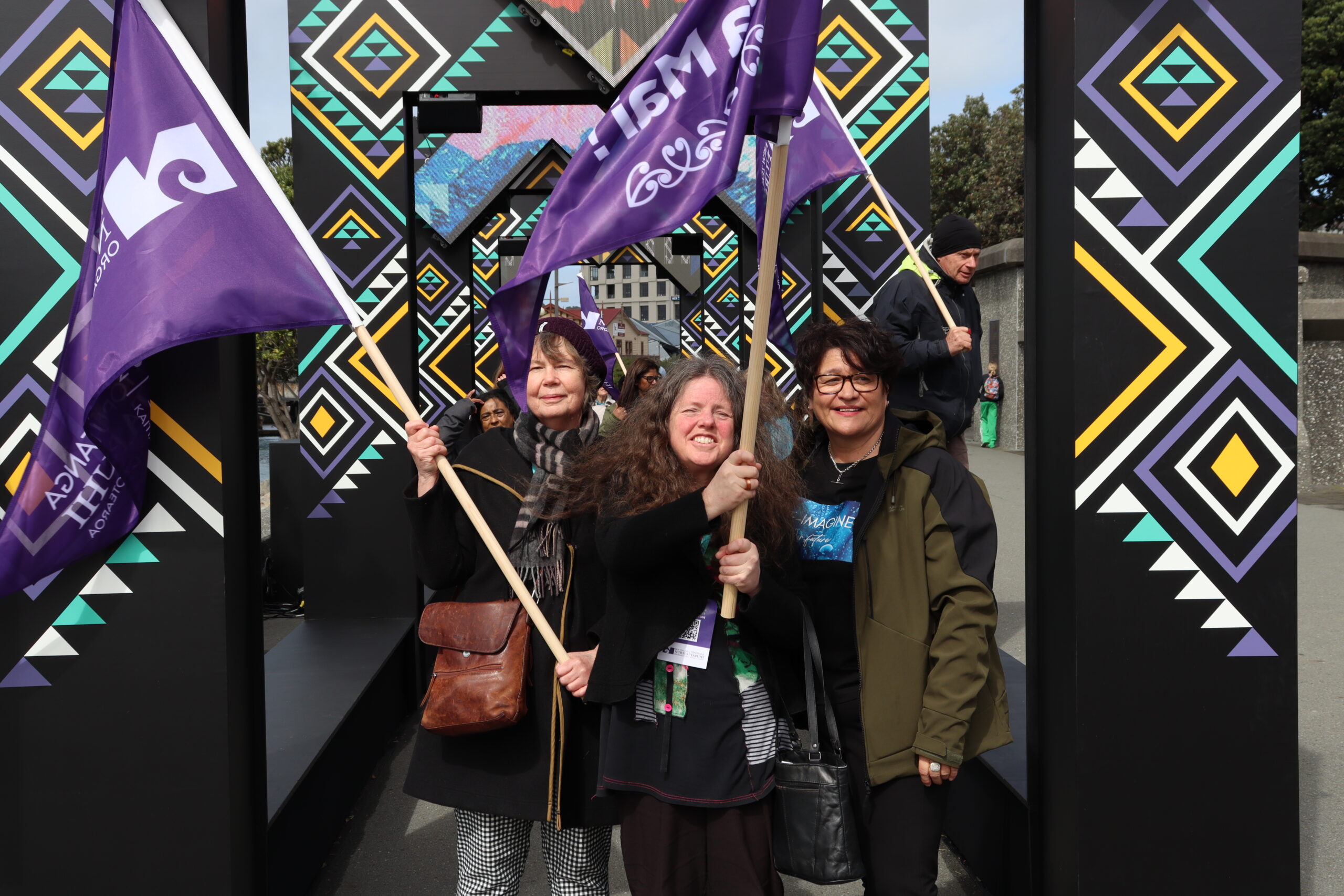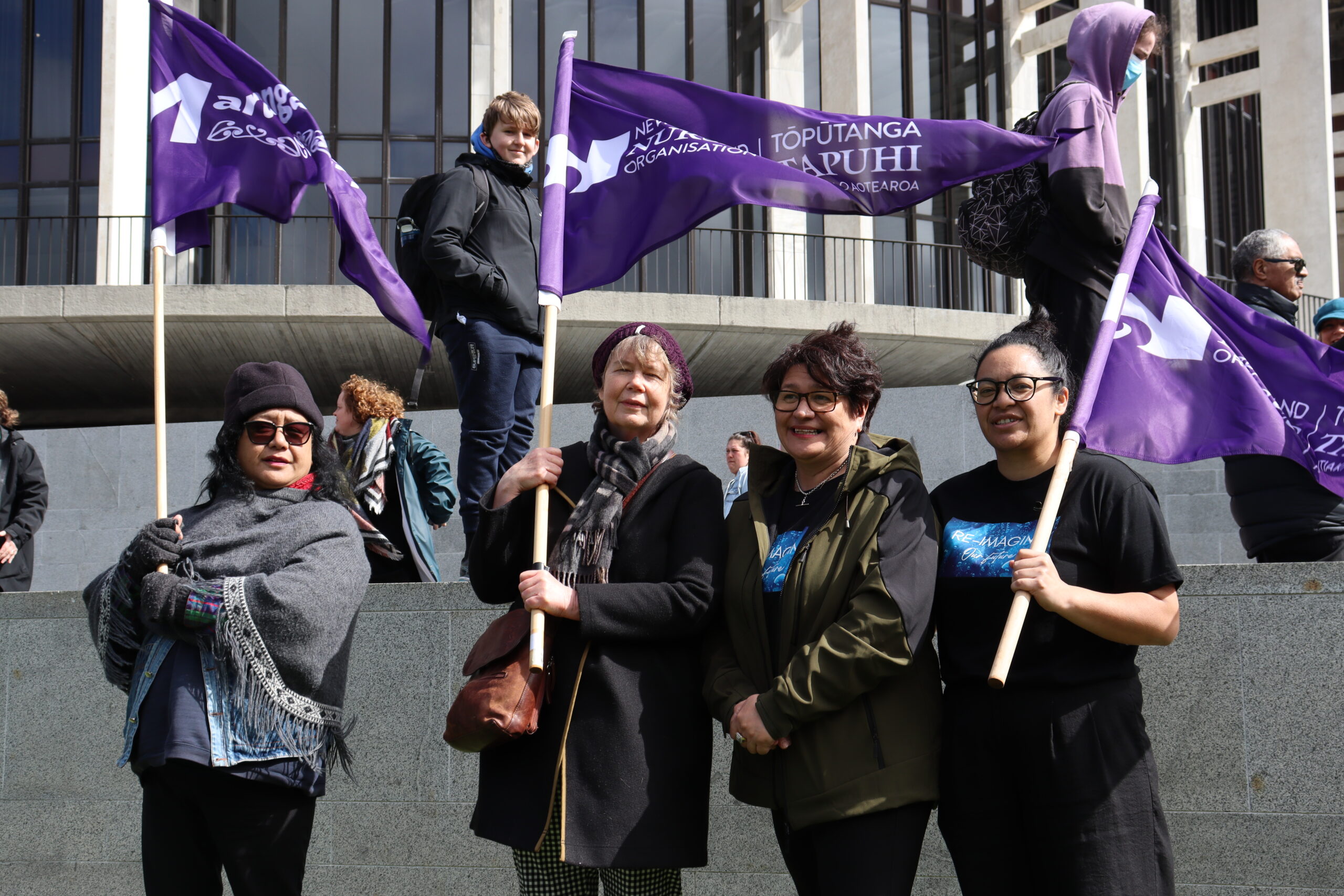A full day of the annual conference was set aside to focus on the campaign and included a hikoi to Parliament to support a celebration of the 50th anniversary of the Māori language petition — te petihana reo Māori.
Maranga Mai! aimed to break down barriers to “actualising te Tiriti”, kaiwhakahaere Kerri Nuku told members, “ . . . as we move forward into realising rangatiritanga it’s about what are our obligations to deconstruct, brick by brick, that wall”.
Goulter said Maranga Mai! aimed to “win the necessary political and resourcing commitments needed to address this crisis permanently across the whole health sector”.
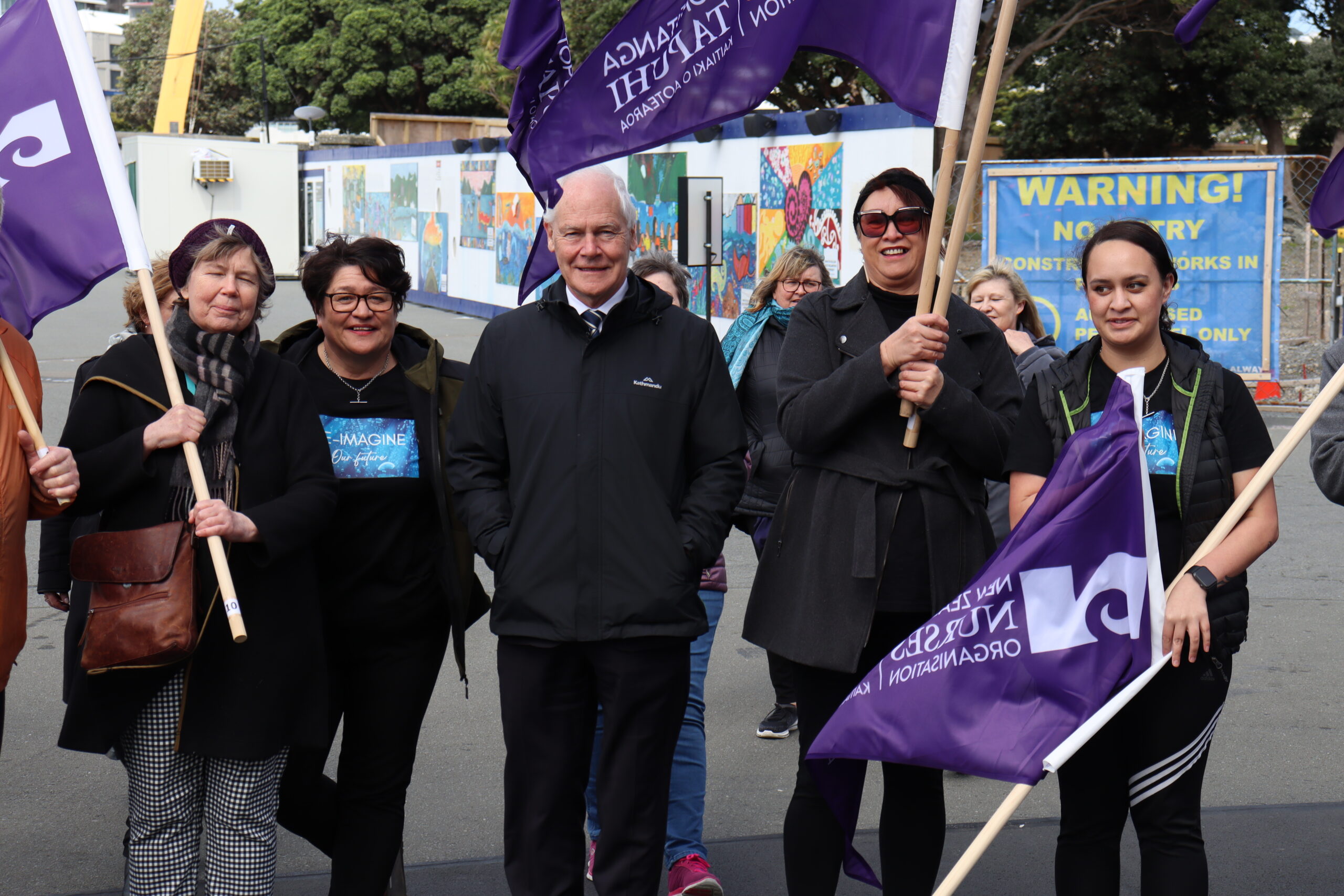
“We’ve got to win because this crisis and the state of the health sector says nothing else is good enough.”
At the heart of the campaign was action, “ . . . because I don’t think just sitting around complaining about stuff wins us anything”.
Nuku said working more collectively would be key to its success.
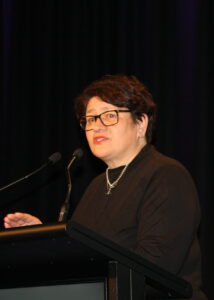
“NZNO has existed on creating silos, colleges and sections, regional councils, rūnanga . . . if we are building a campaign based on winning as a group of nurses then the first thing we need to do is deconstruct some of those barriers that we’ve artificially built.”
“Actualising te Tiriti” would involve rebalancing of priorities within the NZNO and holding the Crown accountable for its actions, Nuku said.
“We all know that as a registered nurse we have to show cultural competency, safety . . . when in reality there is more emphasis placed on the clinical component as opposed to the cultural part, so that is a rebalancing that has to happen.”
President Anne Daniels said the campaign would require members to become more political. “Unless we get involved politically, then nothing is going to change.”
Goals of the campaign included advocating for culturally safe and equitable patient outcomes, which she said could be challenging for some in the organisation.
“Right now, the colonialism that is within our organisation, the racism, it’s still very much present.”
Daniels said she developed a better understanding about racism through her son’s nursing study, and reading some of his course material.
“I realised I was completely ignorant in terms of what I understood racism to be and what it looked like and what it meant to me as a nurse going to work, and I realised I had a lot of work to do.”
She said everyone needed to “step up to the plate” to reflect on the issue if they wanted to prevent further harm.
“I’ve been in this job for one year and I have become extremely aware of the pain that Māori have experienced. We need to change that.”
Another goal was to ensure “every nurse has the power and resources to do the job”.
“When I go to work in ED in Dunedin and I see people in the corridors and I know that in the next eight to 10 hours there’s someone out there who might not be noticed, who will quietly fade away.”
She said the number of “near misses” was incredible.
“Unless we get involved politically, then nothing is going to change.”
“We need to have the power to stand up and say, when we go to work, we haven’t got the resources to be safe and our patients aren’t safe, and we have to use the systems that are in place to make that visible.”
Daniels said Maranga Mai! included advocating for NZNO to be at the policy decision-making table but also for individual members to be more engaged.
“This is not just the delegates’ job, or the thing I see on Facebook all the time, ‘what is NZNO doing about this’. I find that hilarious, you know, NZNO is us and I know that’s old and worn, but it’s real.”
Nuku said delegates could show solidarity with mana whenua, past and present, who had reclaimed their language, by attending the event at Parliament.
“It’s about recognising that we aren’t responsible for the failures of the past but we have an obligation and an opportunity to deconstruct the walls that have [been] built and oppressed us.”



